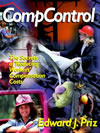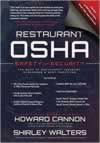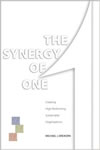All Articles
Alcohol, Tobacco & Other Drugs
Hydrology
Alternative Dispute Resolution (ADR)
Intellectual Property
Appraisal & Valuation
International Trade
Architecture
Investigation & Surveillance
Biokinetics
Jails - Prisons - Correctional Facilities
Blockchain Information
Law Enforcement
Child Welfare
Life Expectancy - Life Care Planning
Child Witch Phenomenon
Logistics - Reverse Logistics
Construction
Marketing
Criminology
Mediation
Discovery & Electronic Discovery
Medical - Medicine
Economics
Mining
Electrical - Electrocution
Oil & Gas
Elevators - Escalator - Automatic Doors
Patents
Engineering
Politics
Ethics / Ethical Duties
Psychiatry
Exercise & Fitness
Recreation & Sports
Expert Witnessing
Risk Management
Family Issues
Search Engine Optimization (SEO)
Feng Shui
Securities
Foot / Ankle Surgery
Slip, Trip & Fall
Healthcare
Telecommunication
Healthcare Facilities - Hospitals
Terrorism - Homeland Security
Human Factors
Underwriting
Human Resources
Yoga
More...

HEALTHCARE-PAGE ARTICLES MAIN PAGE
. Contact Us if you are interested in having your work published on our website and linked to your Profile(s).
All Articles
Addiction Issues & Substance Abuse
HVAC - Heating, Ventilation, Air Conditioning
Alcohol, Tobacco & Other Drugs
Hydrology
Appraisal & Valuation
Industrial Hygiene and Safety
Archaeology - Archeology
Insurance Coverage Analysis
Architecture
Intellectual Property
Arms - Guns - Weapons
Jails - Prisons - Correctional Facilities
Artificial Intelligence (AI) / Machine Learning (ML)
Land Use
Audio Forensics
Law Enforcement
Blockchain Information
Laws & Procedures
Child Welfare
Life Expectancy - Life Care Planning
Child Witch Phenomenon
Manufacturing
Cosmetology: Hair / Makeup
Mediation
Counseling
Patents
Crime Scene Investigation
Plants & Trees
Dental - Dentistry
Plastic / Reconstructive / Cosmetic Surgery
Discovery & Electronic Discovery
Police Practices & Procedures
Documentation Examination & Analysis
Professional Skills
Domestic Violence
Psychology
Education & Schools
Public Speaking
Elder Abuse
Real Estate
Elevators - Escalator - Automatic Doors
Recreation & Sports
Employment
Supply Chain Management
Enterprise Resource Planning (ERP)
Taxation
Forensics
Warnings & Labels
Hotels & Hospitality
Workplace Violence
More...
Featured Articles
There are no active articles here at this time. Please use the search bar, try another category, or contact us if you would like to contribute an article.
This Article is unavailable. Contact Us
Search articles by title, description, author etc.
Sort Featured Articles
Featured resources
Compcontrol: The Secrets of Reducing...
by Edward J. Priz, et al
Restaurant OSHA Safety and Security:...
by Howard Cannon and Shirley Waters
The Synergy of One: Creating...
by Michael J. Dreikorn
Follow us










